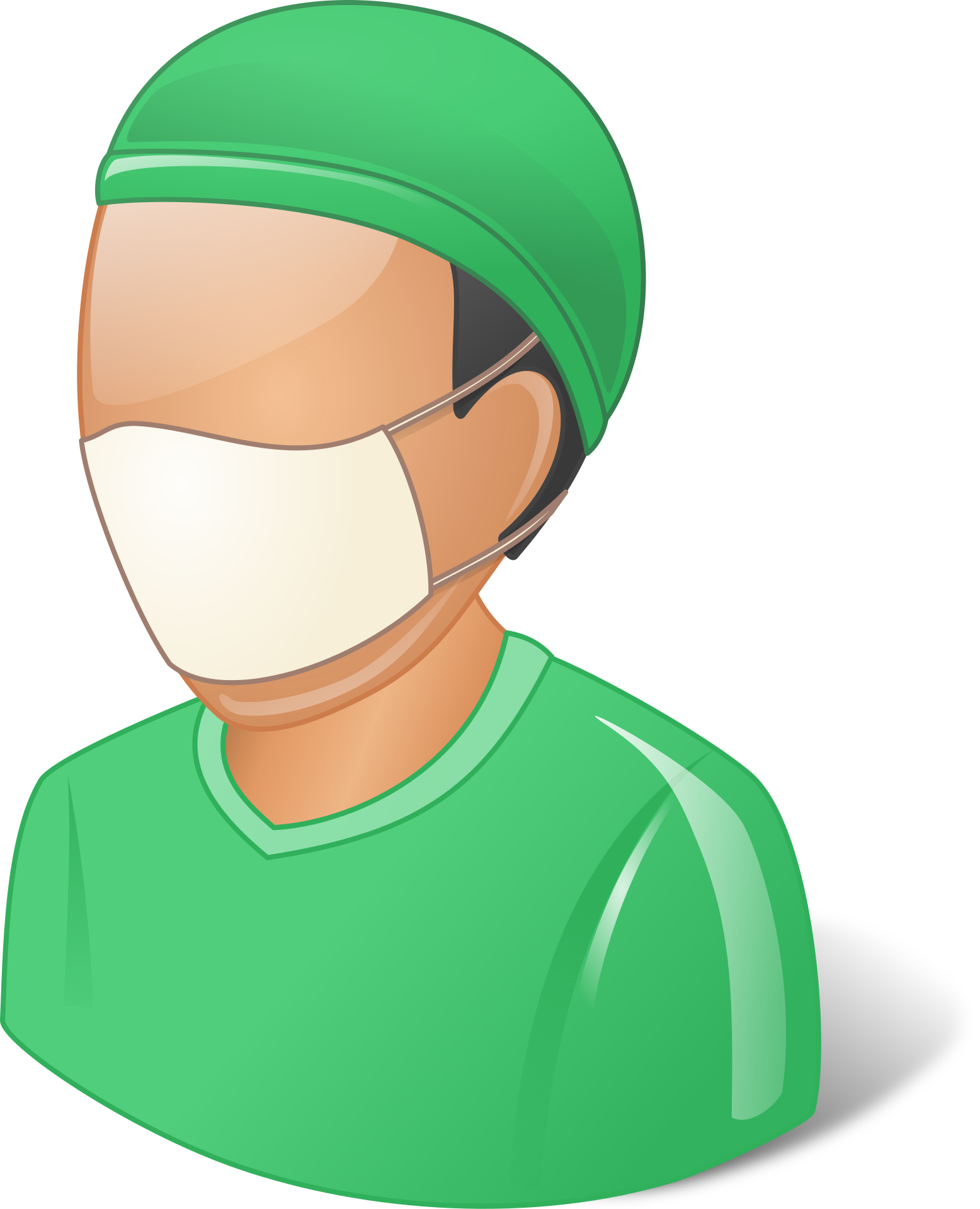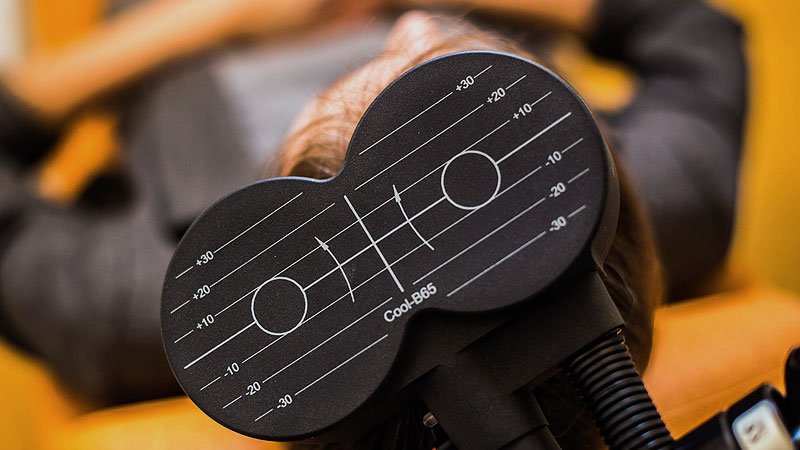Despite its proven efficacy for unipolar depression, intermittent theta burst transcranial magnetic stimulation (iTBS) appears to be ineffective in alleviating symptoms of bipolar depression, new research suggests.
Overall, investigators found that only 16% of participants responded to iTBS during the double-blind period of the trial, and the proportion of patients who responded to iTBS was the same as the proportion who responded to sham treatment. Moreover, in the open-label period of the study, only 24% of patients met the criteria for response. The trial was terminated early for futility.
"If a treating clinician decides to offer TMS to a bipolar depressed patient, we suggest that clinicians refrain from offering iTBS," senior author Lakshmi Yatham, MBBS, MBA, professor and head, Department of Psychiatry, and director of the Institute of Mental Health, University of British Columbia, Vancouver, Canada, told Medscape Medical News.
"Instead, we would advocate using traditional forms of TMS, such as HFS [high-frequency stimulation] to the left dorsolateral prefrontal cortex or LFS [low-frequency stimulation] to the right dorsolateral prefrontal cortex," said Yatham, who is also the president of the World Federation of Societies of Biological Psychiatry and the editor-in-chief of The Canadian Journal of Psychiatry.
The study was published online March 12 in JAMA Network Open.
Insufficient Research
Repetitive TMS (rTMS), a noninvasive neurostimulation treatment, is a first-line intervention in pharmacotherapy-resistant unipolar major depressive disorder (MDD).
Newer TMS protocols that use theta burst stimulation have "garnered significant research attention and evidence for antidepressant efficacy," the authors write. iTMS, in particular, has been shown to produce "lasting neurophysiological changes" and "antidepressant efficacy in MDD." Despite the "growing evidence base" supporting the use of iTBS for MDD, there has been insufficient research in the use of this modality for patients with bipolar depression.
"A meta-analysis we had conducted with data on a small number of bipolar patients who had participated in previous TMS trials showed that TMS is likely beneficial," said Yatham.
"Given that theta burst stimulation requires much less time commitment for patients, and given that this form of stimulation has shown benefit in unipolar depression, we wanted to test if this treatment would work for bipolar depression, especially because there are very few safe and effective treatments for this patient population," she said.
The researchers randomly assigned 37 patients with bipolar depression to receive either active iTBS that targeted the left dorsolateral prefrontal cortex or sham iTBS (n = 18 and n = 19, respectively). The patients were between the ages of 20 and 68 years (mean age, 43.86; 62% women). The patients had experienced no clinical response to ≥1 first-line treatments for an acute major depressive episode (MDE).
Patients who were acutely suicidal, who were experiencing psychosis, who had recently been diagnosed with a substance use disorder, or who had a variety of other medical or psychiatric comorbidities were excluded from the trial.
Patients who did not exhibit ≥50% reduction in score on the Montgomery-Åsberg Depression Rating Scale (MADRS) at the conclusion of the double-blind phase of the study were offered an additional 4 weeks of open-label iTBS.
Unipolar vs Bipolar Depression
The group that received sham treatment and the active-treatment group presented with similar baseline levels of depression of moderate severity (MADRS scores, 32.57 [mean SD, 4.00] and 33.38 [mean SD, 4.46], respectively).
During the double-blind phrase, two participants who were receiving iTBS and four participants who were receiving sham iTBS dropped out of the study; one participant in the active-iTBS group discontinued treatment after 3 weeks because of COVID-19-related institutional closures; and one participant in the active-iTBS group experienced a mood switch after the first treatment session.
The researchers found "no evidence for clinical superiority" of active iTBS in comparison with sham iTBS. There was no significant difference between the two groups in change of mean score on the MADRS (P = .91).
| Group | Mean (SD) baseline score | Mean (SD) 4-week score |
|---|---|---|
| Active | 32.77 (4.04) | 24.46 (10.82) |
| Sham | 31.52 (5.22) | 23.06 (10.58) |
In fact, the least squares mean difference for MADRS scores at week 4 was -1.36 (95% CI, -8.92 to 6.19; P = .91) in favor of sham iTBS.
There were no differences in improvement between the groups with respect to use of different mood stabilizers, and there were no differences in rates of clinical response at the conclusion of the double-blind phase of the study.
| Group | Response (SD) |
|---|---|
| Active | 3 of 18 participants (16.7%) |
| Sham | 3 of 19 participants (15.8%) |
There were no differences between the two groups in self-reported depressive or anxiety symptoms following the intervention.
Of the 29 participants who completed the double-blind phase of the trial, 21 entered the open-label phase. Of these, 16 completed all 4 weeks of treatment.
After the double-blind phase, five patients in the open-label phase of the trial achieved clinical response, and four achieved clinical remission (23.8% and 19.0%, respectively). Of the five patients who experienced clinical response, three had been allocated to the sham-iTBS condition during the double-blind phase.
rTMS has been shown to be effective for unipolar depression but not for bipolar depression, because "these two conditions are likely biologically different," said Yatham.
"There are examples of other treatments that have worked in unipolar but not in bipolar depression — for instance, commonly used antidepressants such as SSRIs [selective serotonin reuptake inhibitors] work very well for unipolar depression, but their efficacy in bipolar depression remains unproven," she said.
TMS Techniques Not All the Same
Commenting on the study for Medscape Medical News, Scott Aaronson, MD, director of clinical research, Shepherd Pratt, Towson, Maryland, expressed concern "that people might extrapolate data from this study to think that TMS doesn’t work for bipolar depression."
Aaronson, an adjunct professor at the University of Maryland School of Medicine, Baltimore, Maryland, who was not involved with the study, said the investigators "have come to the right conclusion, which is the tendency for all of us to look at all TMS techniques as the same."
In an accompanying commentary, Joan Camprodon, MD, MPH, PhD, chief of the Division of Psychiatry, Massachusetts General Hospital, Boston, Massachusetts, said the study "emphasizes the need to deepen our characterization of circuit pathophysiology, the identification of anatomical treatment targets, and the focus on oscillatory physiological dynamics to understand both disease mechanisms and the distinct mechanisms of action (and clinical indications) of different TMS frequency interventions."
The study was supported by a philanthropic donation through the University of British Columbia.Yatham has received honoraria or research grants from Allergan, CANMAT, Lundbeck, Otsuka, DSP, Sanofi, Intracellular Therapies, AbbVie, Merck, and Sunovion. The other authors’' disclosures are listed on the original article. Camprodon has served on the scientific advisory board of Hyka and Feelmore Labs and has received consultation honoraria from Neuronetics. His research is currently funded by the National Institutes of Health, the AE foundation, the Solinsky Foundation, and the Gerstner foundation. Aaronson is a consultant for I Neuronetics, a company that makes TMS devices.
JAMA Netw Open. Published online March 12, 2021. Full text, Commentary
For more Medscape Psychiatry news, join us on Facebook and Twitter.

